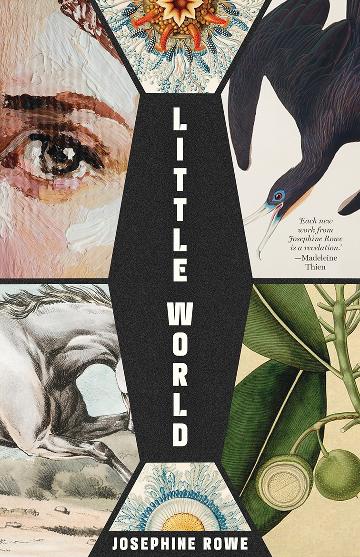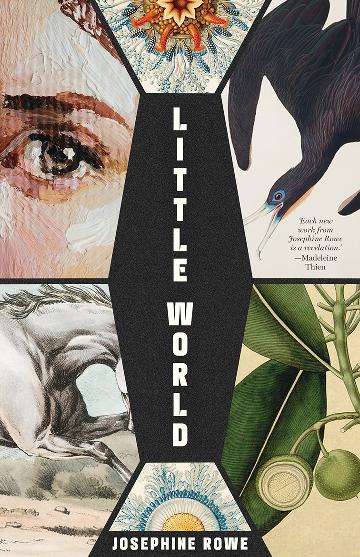Josephine Rowe
Little World
Little World
Couldn't load pickup availability
Susan Midalia's Review
Australian writer Josephine Rowe’s third novel, Little World, begins with the arrival of an unnamed child in a box, stranded in the Kimberly desert of Western Australia. The story immediately immerses us in a world of bizarre uncertainty: is the child alive or dead? Has she had sainthood bestowed upon her? How does she observe the people around her without them knowing that she’s there? As the omniscient narrator puts it, with a tersely enigmatic air: “To speak of consciousness: complicated.” But the mysteries at the heart of this evocative novel are not treated as abstract, metaphysical matters; rather, they are used to subtly explore crucial ethical issues in the real world: the destructive effects of colonialism, the violence perpetrated against women, and the hypocrisy of institutionalised religion.
Structured in three parts, and moving in time and space – from the 1950s to the present day and located in several continents – Little World is also a tribute to the power of nature. It asks us to consider whether meaning is to be found in the physical environment instead of by worshipping God. The structure also introduces three solitary figures. Orrin Bird, a retired researcher living in the Kimberly, is sent the body of the unnamed child by a colleague living in Nauru. That man is Kaspar Isaksen, a pitiful alcoholic tormented by the fate of the lepers for whom he was meant to care. The third character, the last in what we might regard as a secular version of the holy trinity, is Mathilde Eberhart, an Australian daughter of German migrants, who has been forced into a home for unmarried mothers. What connects the three characters is the unnamed child’s concern for their ordinary humanity: their recognisable needs and fears; their small acts of kindness in a brutal world.
Little World is also distinguished by the presence of an omniscient narrator, whose vision of life - variously wry, angry, detached and lyrical –asks us to pay attention to the violence and injustice of history and in the present day. While the novel’s mode is elliptical and oblique, requiring the reader to connect its various narrative threads, there is nothing ‘little’ about its compassion for suffering people.
While Josephine Rowe, now based in coastal Victoria, has won multiple awards for her previous five works of fiction, I suspect she remains relatively unknown in Western Australia. In my view she is one of our most intelligent and interesting writers, as well as an exquisite stylist. I have admired, indeed loved, her three short story collections and her two novels, especially her novel A Loving, Faithful Animal, which focuses on a veteran of the Vietnam War. I hope that Little World will garner her many more readers. You can read it in one sitting to experience its intricate shape and emotional intensity, or you can take your time to reflect on its bracing ethical power.
Publisher's Review
A mesmerising tale from one of Australia's literary stars.
'He has no notion of how to care for a saint. Even a small one. Does not even believe ... Still. Catholic or not. You don't turn away a saint.'
In the north-western corner of 1950s Australia, a saint arrives at the home of a retired engineer, who unwittingly becomes her custodian. A girl of indeterminate age, her body remains as it was when she died, incorruptible. And though no one knows it, she is conscious, reflecting on past and present.
Little World stretches across continents and eras - from the Canal Zone in Panama and the island of Nauru all the way to the onset of Covid in contemporary Victoria. Beautiful, rich and strange, it weaves a tale of interconnected fates as characters grapple with the unknowable, and in this way come face to face with their deepest needs.
'Josephine Rowe is a breathtakingly good writer.' - Michelle de Kretser
'Each new work from Josephine Rowe is a revelation.' - Madeleine Thien
Share


